Humans
Sign up for our newsletter
We summarize the week's scientific breakthroughs every Thursday.
-
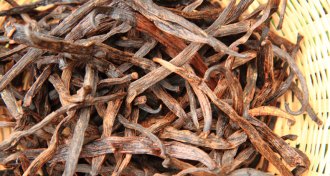 Archaeology
ArchaeologyA Bronze Age tomb in Israel reveals the earliest known use of vanilla
Residue of the aromatic substance in 3 jugs dates to around 3,600 years ago.
By Bruce Bower -
 Health & Medicine
Health & MedicineSmall doses of peanut protein can turn allergies around
After a year of careful peanut protein exposure, most kids in a clinical trial could tolerate the equivalent of two large peanuts.
-
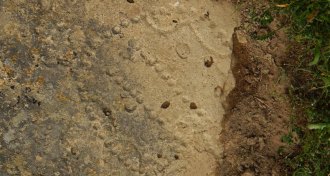 Archaeology
ArchaeologyA Bronze Age game called 58 holes was found chiseled into stone in Azerbaijan
A newly discovered rock pattern suggests that the game traveled fast from the Near East to Eurasia thousands of years ago.
By Bruce Bower -
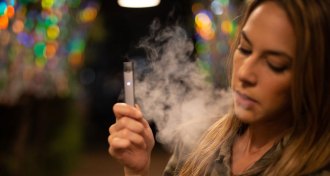 Health & Medicine
Health & MedicineFDA restricts the sale of some flavored e-cigarettes as teen use soars
The number of high schoolers who vape rose 78 percent from 2017 to 2018.
-
 Health & Medicine
Health & MedicineLyme and other tickborne diseases are on the rise in the U.S. Here’s what that means.
A record number of tickborne diseases were reported in the United States in 2017. An infectious disease physician discusses that result and others.
-
 Genetics
GeneticsCoffee or tea? Your preference may be written in your DNA
Coffee or tea is a bitter choice, a taste genetics study suggests.
-
 Anthropology
AnthropologySkull damage suggests Neandertals led no more violent lives than humans
Neandertals’ skulls suggest they didn’t lead especially injury-prone lives.
By Bruce Bower -
 Health & Medicine
Health & MedicineU.S. cases of a polio-like illness rise, but there are few clues to its cause
A total of 90 cases of acute flaccid myelitis have been confirmed so far this year, out of 252 under investigation.
-
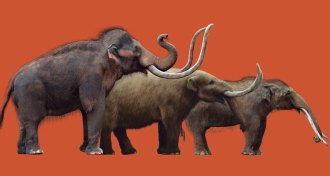 Ecosystems
EcosystemsHow mammoths competed with other animals and lost
Mammoths, mastodons and other ancient elephants were wiped out at the end of the last ice age by climate change and spear-wielding humans.
-
 Health & Medicine
Health & MedicineA potent fish oil drug may protect high-risk patients against heart attacks
People with, or at high risk of, cardiovascular disease lowered their chances of having a heart attack or stroke with a drug containing an omega-3 fatty acid.
-
 Health & Medicine
Health & MedicineVitamin D supplements don’t prevent heart disease or cancer
Vitamin D supplements won’t cut your risk of heart attack or stroke, according to highly anticipated study results.
-
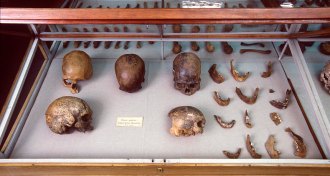 Genetics
GeneticsAncient DNA suggests people settled South America in at least 3 waves
Genetic studies of ancient remains are filling in the picture of who the earliest Americans were and how they spread through the Americas long ago.